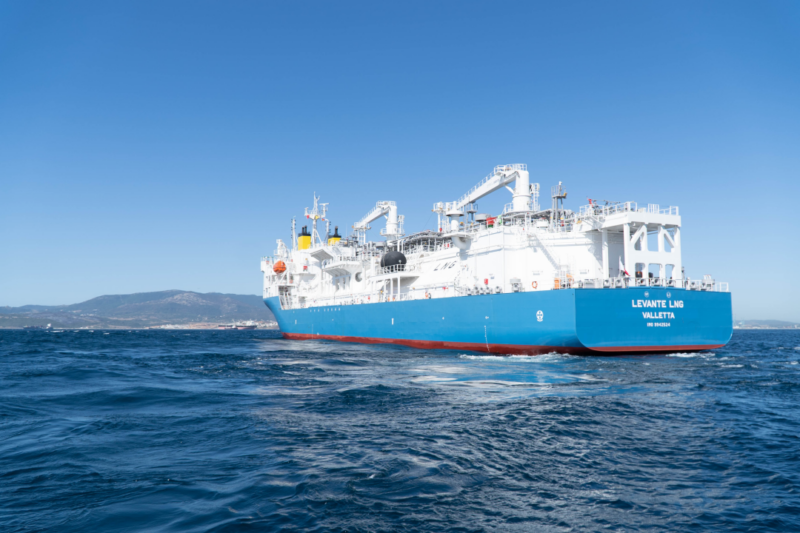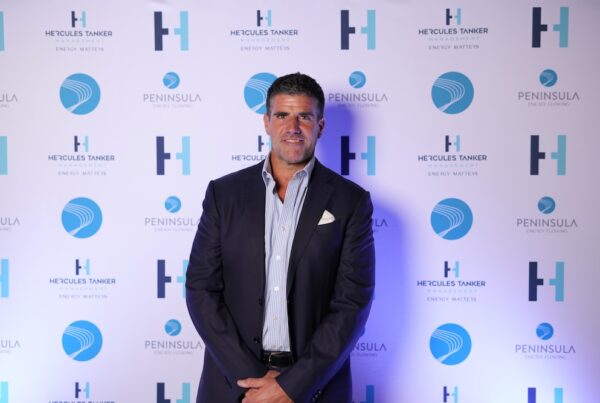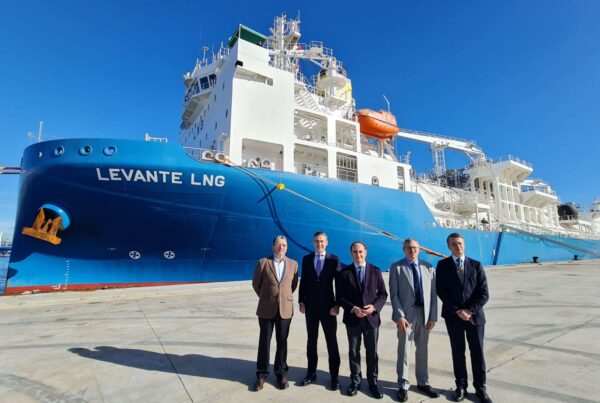
It’s been three years since Peninsula made the decision to build the Levante LNG, our dedicated 12,500-cbm LNG bunker vessel, developed in Hyundai Mipo Shipyard, South Korea, through a joint venture with our friends at ENAGAS’ affiliate Scale Gas. Fast forward to now, Levante LNG is fully operational and regularly supplying LNG as marine fuel in the Strait of Gibraltar and Western Mediterranean.
Three years might feel like the blink of an eye to some, but the period has been characterised by remarkable growth for the LNG bunkering market. DNV figures show that globally, the LNG-fuelled fleet has grown considerably since 2020 – with 717 LNG vessels currently in operation. A further 341 are now on order and set to join the mix soon.
Certainly, we’ve seen an uplift in interest in LNG from our customers in recent months. From supplying the Royal Caribbean Group’s cruise vessels Silver Nova and Icon of the Seas to Eastern Pacific’s tanker Starway, MSC’s containership Virginia and, more recently, K Line’s PCC Thor Highway, our Levante LNG bunker vessel has indeed been busy.
Why is demand for LNG bunkering growing?
Beyond shipping, global LNG trading has become strategic since Russia’s invasion of Ukraine, particularly in Europe, where there have been efforts to find alternatives to Russian gas pipeline supplies.
Focusing on shipping, there is also significant regulatory pressure to reduce C02 and other emissions, like NOx & Sox, associated with the burning of conventional fuels in marine engines. The International Maritime Organisation has set a target for the shipping industry to reach net-zero greenhouse gas emissions by, or around, 2050 and last January we saw the EU Emissions Trading System come into effect for the maritime sector. Ship operators are now effectively accruing a bill on their emissions for any voyages with a port of call in the EU, and shipping companies will soon need to surrender EU allowances corresponding to their reported aggregate emissions for 2024.
Regulatory pressure has therefore catalysed LNG’s remarkable growth trajectory and this surging demand shows no sign of stopping. Recent analysis from Ship & Bunker of DNV data on the orderbook for new vessels last year reveals that LNG is the most popular alternative bunker fuel, followed at a distance by methanol.
This is good news because as demand for LNG bunkering grows, LNG infrastructure is also improving, making it easier for ships to access LNG supplies all around the world. For a global industry that constantly grapples with re-routing, that’s crucial.
How will LNG help decarbonise shipping?
By transitioning to LNG now, which is readily available, ship operators and owners can slash their CO2 emissions by around 25%.
LNG is one of the cleanest-burning non-electric marine fuels available, producing significantly reduced amounts of CO2, NOX and SOx and virtually no particulates or ash. Not only is it far less carbon intensive than crude oil derived products, but it is also charting a course for even further emissions reductions through the development of bio-LNG and eventually synthetic LNG. This can help us achieve net zero by 2050.
The emerging bio-LNG market is scaling rapidly. Produced from natural waste streams, such as agricultural and forestry waste, sustainable bio-LNG even has the potential to capture methane that would otherwise be released into the atmosphere – so could be carbon-negative. Hot on its heels, research and development into synthetic LNG is ongoing. Synthetic LNG would be produced from renewable electricity to power fleets with 100% clean energy.
Want to find out more?
Your choice of fuel is a big deal – impacting on running costs, maintenance, and retrofit requirements, it can make or break a profitable trip.
LNG as a marine fuel is still relatively new and decarbonisation regulations are complex. At Peninsula, we have operations all around the world and a number of LNG experts who are happy to advise customers on their specific fuel needs and circumstances.
Our team of Alternative Fuels and Sustainability experts can be reached on lngalternativefuels@peninsula360.com – do get in touch if you’re interested in discussing further.





